As an amateur scholar and die-hard enthusiast of everything to do with Alice in Wonderland, I have launched a Podcast that takes on Alice’s everlasting influence on the pop culture zeitgeist. As an author that draws on Lewis Carroll’s iconic masterpiece for my Looking Glass Wars universe, I’m well acquainted with the process of dipping into Wonderland for inspiration. The journey has brought me into contact with a fantastic community of artists and creators from all walks of life—and this podcast will be the platform where we come together to answer the fascinating question: “What is it about Alice?”
It is my great pleasure to have Curtis Clark join me as my guest! Read on to explore part two of our conversation and check out the whole series on your favorite podcasting platform to listen to the full interview.

FB
You’ve had to learn the art of pitching so instead of writing all these things on spec you can take that next idea now that you have some doors to knock on and some folks to talk to.
CC
That’s what I've been doing for the last couple of years. When I first became a writer, I didn't even think about pitching. I'm not a performer. Then I go to San Diego Comic-Con with you and I'm watching you drop into this well-polished pitch with strangers who are just walking up to your booth and in 15 seconds they know what the world is. I was like, “Well, shit, now I gotta learn how to do that.”
I was pitching Amazon the day the strike happened. We were doing it over Zoom. I would prefer to go in a room and shoot the shit like you and I are now, find something to riff back and forth on, get excited, get the notes, get out, and go to town. That's not the way it is anymore. Now it's over Zoom, they're on mute and they're gonna sit there for 30 minutes, nod their head and you're gonna hope they're not reading their email. It sucks. But you have to do it.
FB
It’s a lot harder to connect personally, because of the lack of proximity to each other and feeling that transference of energy that goes back and forth in a pitch, especially when it starts going well, and you're building that momentum.
CC
My reps will send me the mandates the studios send out, “We’re looking for this, this, and that. By the time you get to them, they don't want that shit anymore. Honestly, where I'm at now with the way that I do development, I don't even think about the market. You can't time the market. You're not going to be there when the market wants what it wants right now anyway, and so you're almost better off trying to develop what's not in the marketplace or what the markets aren’t buying. By the time you're ready to go out with a project, it literally could be a year or two from when you conceived of it. Who knows what they’re gonna want? Everyone wanted Ted Lasso last buying season. Guess what? A bazillion Ted Lasso’s hit the market. So, if you're going with Ted Lasso next year, you're dead. It’s not gonna happen.
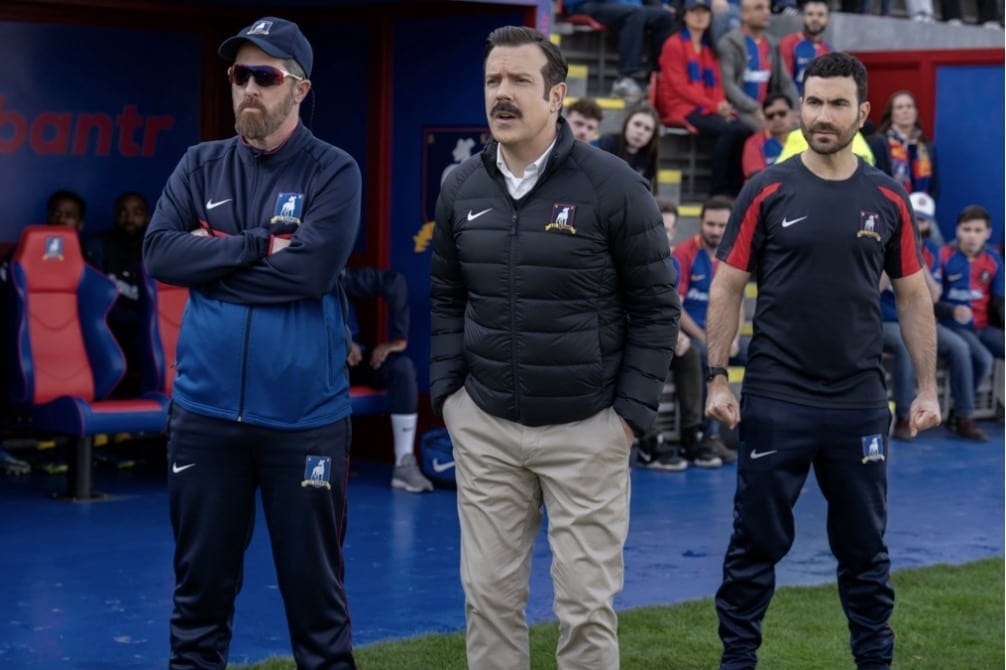
FB
But in five years, it might be perfect timing. Your script, Run, could fall right into place. It's unknowable.
CC
I have a project right now that is a deep-cover espionage story set within the Alt-Right. It's already a tough subject matter. It's a limited series. The script is great. Probably the best writing I've ever done. It hasn't left the shelf because the timing is not good. January 6 is still in everybody's mind.
FB
It's too close.
CC
But by the time it got made it would be two or three years from now. So, who knows? It's so tough that way. For me, the feeling of it being such a strong sample is that even if it doesn't sell, it's going to do good things for me. Well, I don't want to hear that when we're not able to send the script out. So, you're telling me I have this possible golden ticket in this drawer, but “Hey, just keep it in your wallet for a little bit longer, pal.”
FB
Well, isn't that why you're writing a graphic novel? Tell me what your what you're working on.
CC
There are two things I'm working on right now. One is this graphic novel called Ender's that I co-created with this guy named Nathan Reed. It’s essentially about contract killers for the dead. It's about this guy named Ender Endless and he's given a second chance by Death, which is more of an entity and not a person. Death isn’t good or bad death, it’s a construct. So, they go around the world and they end Wayward Souls, people whose souls refuse to leave Earth because they were wronged or their lives were unjustly taken. The job of Ender is to either satisfy the Wayward Soul by being possessed by them and empowered, then go and take care of the guy who unjustly killed them. Or if that soul festers too long on Earth, they’ll manifest in flesh as monsters. They're ticking time bombs and the whole point is they gotta keep Death’s books clean. Death doesn't care if they go up or down river, just as long as there aren’t too many of these Wayward Souls on Earth because then a living death could happen where the dead rise. The story isn’t about a zombie apocalypse. That’s the White Walkers of the story. It follows Ender Endless and the discovery of who he was because he has no memories from his life.
I love the tone of comic books because you get action and you get quippiness, and you get funny stuff. But with the modern indie books and the movement that comics have been on in the last 30 years, the writing’s gotten so much better. It's TV-quality writing. You get to do a lot of drama. We’re talking to an artist who was nominated for a Hugo and we like him because my biggest thing is how well the artist gets their characters to act. He has a traditional style, but his characters are very expressive. I love expression in comics because it's fun. So hopefully we can get him. I've written the first two issues and I'm gonna write three more on the contract. Then, if it’s successful, I'll probably write more of it.
FB
So, you’re doing individual issues, you're going to release those first, in very traditional terms, 23-26 pages?
CC
We’re doing it the way Image does it because that's the publisher we want to approach. You did the first Hatter comic through Image. It’s creator-owned so we’ll get to keep the immediate rights to it. The idea would be to single issue publish the first five issues and then Image would collect it as a trade paperback and sell it that way. That’s how they make their money. That’s the route we want to go. But we have to get an artist on board and we'll do the first five pages with the couple of scripts, and then we'll talk to publishers that way. We're not going to spend all the money doing the art for all five books if we don't have a publisher.
Part of the pivot is because I couldn't sell that in Hollywood if there wasn't a comic book first. The market is too risk-averse. If you have original ideas, you’ve gotta go to a different medium first. It's the same reason I'm writing a novel now. If I were to write that as a spec script, there’s no way in hell it’d get made as a $100-120 million epic that's not based on anything. So, I have to write it as a book.
FB
But at the same time, it's deeply satisfying to write and create something and have it be a thing, whether it's a book or a comic book. If it turns into a movie, that's great. But, when I wrote The Looking Glass Wars, I was like, “Okay, if this could just be a book, and certainly the first comic, will people even look at this?” Once I got Ben Templesmith for the first comic, I thought, “Oh, people will see it and want to check it out because of Ben Templesmith.” It’s similar to Hollywood. But the thing I realized that was so satisfying is, no matter what happened, I haven't made anything out of The Looking Glass Wars and it's been 20 years, but I don't care. I love the world and the sandbox I play in every day.
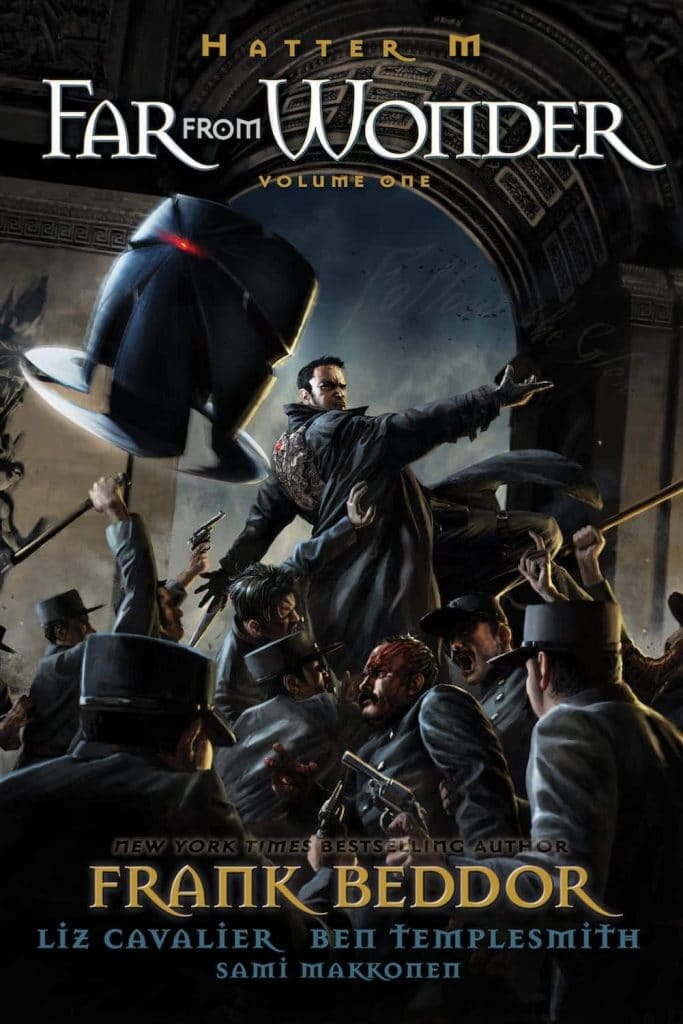
CC
That’s the thing for me, especially for the first book, that it's just gonna be me and the audience. I have to get a publisher in place. My reps and I are putting the submission together. I've written the first 20,000 words, the first five chapters, and there's a prologue. I've had the prose evaluated - it walks and talks like a book and it's done pretty well, in terms of the quality of the writing. But the thing I'm excited about is that it's not going to take 150 people and $600 million. It's not even going to require the input costs of a graphic novel.
FB
I just wrote a blog post today about the editor, Cally Poplak whom I met 20 years ago when Egmont in the UK published my book. I was really struck by her editorial letter, which was incredibly extensive. She said she had the pruning pencil, and she had something for all 358 pages of the book. It was completely daunting and whenever I go to schools, I show some of the pages. It's the only time the English teachers get excited.
CC
For me, it goes back to that unicorn thing. When I first read Frank Herbert's “Dune,” I assumed that the book went from his mouth to the page. You often don't think about the role an editor has in getting the story to that place. So that gave me confidence, knowing that I don't have to be perfect.
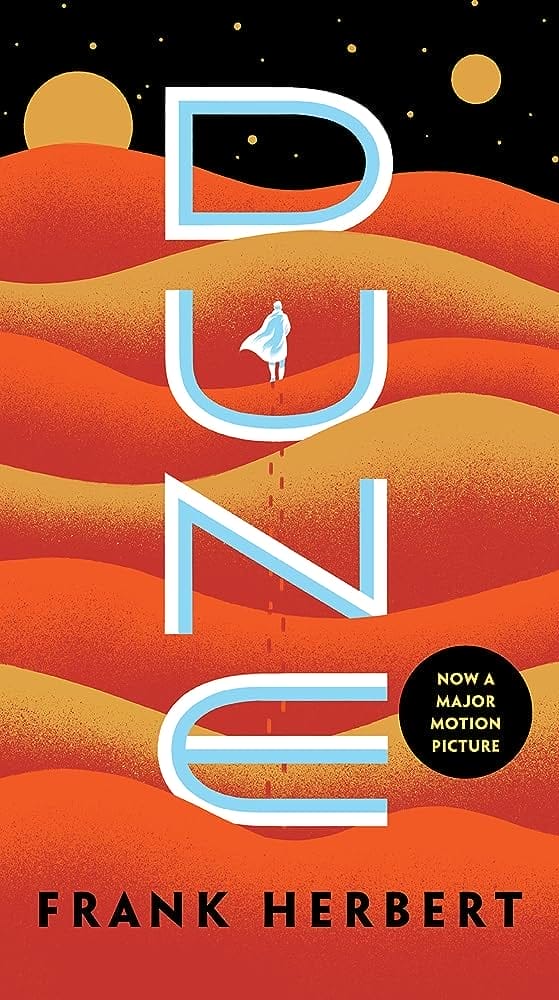
FB
But you mentioned Frank Herbert and basically, all people named Frank who write are pretty natural and don't have to work that hard at it.
CC
And all people named Curtis are donkeys. But with editors, they're not trying to do what writers do when they read, which is, “This is what I would have done.” They're trying to make it work.
FB
My editor said, “This is your book, and if you don't want to take this on, don't take this on. These are really suggestions.” She was so smart in giving me ownership and having great editorial advice and ideas but never losing the thread that this was my book.
CC
It’s way different than Hollywood.
FB
That’s the whole point. It’s not just about writing a book so I can get a $150 million movie made. It's writing a book because it's an amazing experience and it's mine. No matter what happens, it comes from my mind and my imagination. Then if what was in your head translates to the reader, and the reader tells you, that will blow your mind. Then they dressed up as characters and then they got tattoos and you're like, “Okay, how did that happen?”
CC
I have one character in the book that if anybody gets a tattoo, I know exactly who it will be. But I can't spoil that character because he's fun. But I agree with everything you're saying. It's the most fun writing, in some ways, that I've ever had because I'm not thinking about anyone other than myself. Whereas when you're writing a comic, you're thinking of the artists. When you're writing for television or film, you're thinking about the executives and a million other things you don't want to think about, but you have to.
I had this discussion with my friend Brian Hanson, who has an MFA and has directed movies. I was like, “I have an unpopular opinion, I actually think prose is easier than screenwriting.” He goes, “You're out of your mind.” But I said, “No when you’re writing prose, you get to do all the jobs. You’re the sound designer, you're the actor, you're the director, you're the writer. You get to write all the senses. The issue with screenwriting is people overwrite way too much because they're not used to the economy of words. It puts you in a box. It was liberating to do prose. I'm not saying I'm great at it, but I had a great time doing it. Also, the way you can get yourself out of trouble and make a scene work is so much different because you have the character’s thoughts, whereas with a screenplay, absolutely not, unless you do a voiceover.
FB
As you said earlier, all three, prose, screenwriting, and comic books are very different. All three require a different skill set. I would imagine that when you finish this book and you're on your fourth book, you'll look back at that first book and go, “Wow, I could have done such a better job.” I certainly feel that way. But you're in the moment and you have the skill set that you have and you have the imaginative power that you have. You create the thing, you put it out there, and you hope people receive it in the way that you intended.
CC
It's called Paragons, but I don't know when it'll come out.
FB
And you've written 20,000 pages and tell us, is it Y.A., is it adult?
CC
It's the older end of Y.A. Ages 14-17.
FB
How many pages? What are you thinking for word count?
CC
It'll probably be close to 100,000 words. I know a lot of Y.A. is around 80,000 words but for a lot of Science Fiction Fantasy, you tack on some words because of the world-building. So, I'm shooting for somewhere between 80,000 and 100,000 words.
FB
Yeah, I’d say 80,000 words is a very good mark.
CC
We had a conversation about this book and I still take some of the things you said to me and have built them into how I'm building the world in terms of the age of the protagonist and making sure that all of the “good stuff,” is in the first book, meaning you only have one chance to hook them. I'm trying to be as aware as I can be from a seasoned writer’s perspective and knowing what I know from being in Hollywood, but to your point, this is the first time I've written a novel.
FB
It really falls on the prose. With a screenplay, you can have somebody rewrite it. With comics, the art can be the thing that shines and people will buy it. But with prose, it’s absolutely the words on the page.
CC
I wrote a test chapter because I was worried about if I could even do it. I was having full-blown impostor syndrome because I’ve done screenwriting and that translates pretty easily to comic books, but prose is a different animal. So, I did the first chapter and the feedback was, “What's gonna happen next?” I thought that was a sign I should write what happens next.
FB
That's very funny because my editor said to me, “Frank, you've clearly done all of the research. You clearly have this whole world in your head. You clearly know what their backstory is. But the readers don't really care. They only want to know about what happens next.” That one stung a little bit.
CC
It’s like the City of Gods pilot I wrote. There was so much, “Check out all this cool stuff in this world that I'm going to do.” Then the feedback was, “Hey, man, that's exposition.”
FB
I thought that was a really cool world. You might want to revisit that.
CC
I've thought about it. But the thing I got was that Greek mythology is a little dusty. That’s the word they like to say. Then the next thing you know, Dan Harmon is doing a Greek gods adult comedy.
FB
It depends on who's writing it. When Frank Scott did The Queen’s Gambit and started with the young girl version for the entire pilot and then cut ahead in the second episode, it was a revelation. “Oh, you can do that?! I'm gonna revisit The Looking Glass Wars.”

CC
Meanwhile, Alyss starts when she's a kid and then becomes a teenager. The one thing I'll say about the transition from screenwriting to prose that I do think is somewhat beneficial is the knowledge of structure. You were the one who sent me The Hunger Games. Suzanne Collins is a screenwriter and every single one of those chapters is - cliffhangers like hell. So, of course, the reader is compelled to read the next chapter. Next thing you know, you’ve read the book in three days. Anytime someone tells you, I read this book in three days, you think, “Oh, that's good.” Hopefully, I’ll be successful in baking that into my style, where, because of my screenwriting background, it's well-paced with good cliffhangers.
FB
I think people describe my book, the people that liked it anyway, as being very cinematic as well as a page-turner, which was really important. It’s something I focused on because, with middle-grade kids or young adults it’s so important to engage them and to continue that engagement.
CC
My biggest concern with what I'm doing with this book is that I may have aged up too much. I'll be curious to see what happens when we go to publishers. If they say, “Hey, this is written a little too old.” It’s written at about a seventh-grade reading level, which is the target reading level for casual prose, but the worry is that it's coming from the mind of an adult too much. I'm a little worried about that part of it.
FB
It depends on the vocabulary you're choosing, but it's not knowable until you put it out there. I didn't know that there were children's publishers, Y.A. publishers, and middle-grade publishers when I wrote The Looking Glass Wars, which is why if I had known that I wouldn't have had a seven-year-old, 13-year-old, and 18-year-old in the same damn book. But that was the way I saw the story so I just wrote it and then I got passed on all over the place until Cally came along.
CC
But then it became a New York Times bestseller, so I guess it proves you correct.
FB
Thanks to my editor.
I want to talk about influences and imagination. In your bio, it says that you “spent your youth spun up in a tornado of comics, novels, films, television, and games.” In terms of your style of writing, and in terms of your choices of stories to tell, what were your top influences?
CC
I read tons of sci-fi and fantasy: Ray Bradbury, Dune, Neuromancer, Dungeons and Dragons novels, Magic the Gathering novels, Asimov, and Philip K. Dick. I really liked this series called Coldfire Trilogy by Celia Friedman. That was a different take on fantasy because it was human beings landed on another planet and our technology didn't work, so we're forced to go back to a feudal situation. I like that kind of setup. Those books really inspired me, but I read them when I was a teenager. I was doing this stuff when I was five.
I have older cousins named Travis and Rob and they took me on a Dungeons and Dragons campaign at our cottage in Fife on Lake Michigan when I was like eight years old, I begged them to do it. It was amazing. I couldn't believe I got to make a character and they were in the story. My cousin was the one telling me the story. John August, the writer, does a podcast with Craig Mazin, and someone asked him, “My kid is interested in writing. What should I do? What's the best thing I could do?” His answer was, “Have him play Dungeons of Dragons.” You’re in charge of the story and it's also social so your kids aren’t alone all the time. They have an audience in front of them to interact with. So, I played Dungeon and Dragons, Vampire the Masquerade, Werewolf the Apocalypse, and Shadowrun, the second version, which is one of my personal favorites. I played other fantasy games like Harp and then Magic the Gathering, which is a little bit like The Looking Glass Wars because it also has fantasy elements, science fiction elements, steampunk elements, and cyberpunk elements blended together. It's big, broad worlds that go between different planes of existence. Those were the big influences.
In terms of comics, I grew up reading my older brother Peter’s comics, and God, I got lucky. That was the Chris Claremont X-Men run, which is the Dark Phoenix Saga and The Morlocks. I got to read a bunch of that stuff, which really affected me. Zany books like Groo the Wanderer and the Marvel What the--?! books. I read a bunch of really bad comics in the 90s. It wasn’t a great time for comics, to a degree. But that's where it all came from.
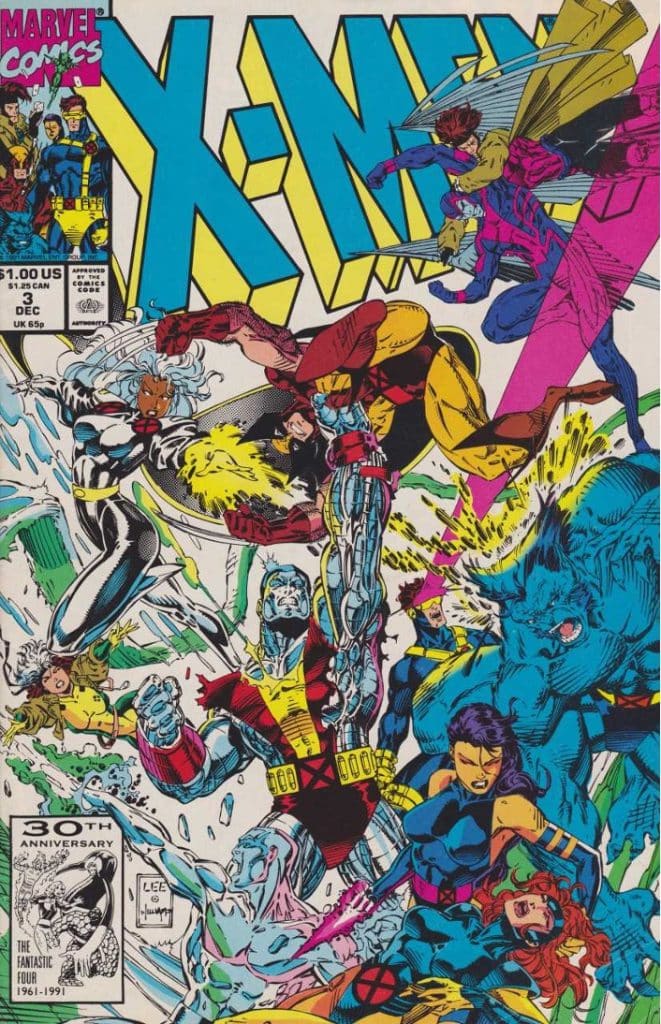
FB
So, a serious nerd-dom coming out of farm life in Michigan where you got inspired because you’re reading Magic the Gathering and Dungeons and Dragons novels alongside some of the great sci-fi writers in history.
CC
I’m not equating them as being as good.
FB
But you can go back and forth. That’s a love of it. That's a love of the world creation aspect of it.
CC
There are some great stories out there. Final Fantasy VII has a storyline that follows a character named Cloud Strife and the bad guy’s name is Sephiroth. It’s this really crazy epic about cloning but when I was playing that game, when I was 10-11 years old, I'd never seen this type of story before. Even though maybe there was a better version of that story somewhere else, it got to me through games. You look at all the stuff that's being made in television now and you can see all of these people were influenced by their childhoods in the 80s and 90s. Some of that is through gaming. Look at how successful gaming movies have become.
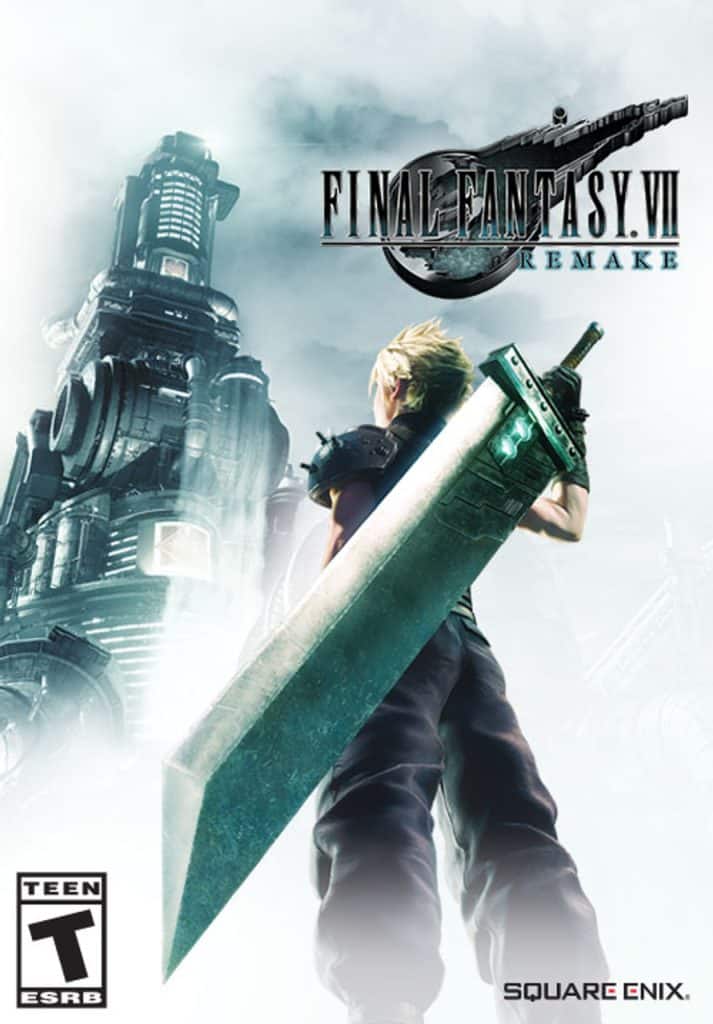
FB
Finally, there are writers who understand how gamers see the worlds they interact with.
CC
It took a while for the industry to take those stories seriously but, moving forward, that's going to be a huge part of movies because the gaming industry makes more money than movies do.
FB
Which is why I think Netflix is trying to get into the game business and probably Amazon as well, but it's a different animal. I think they will have a hard time. Again, it comes down to creators who have unique visions. I gotta give it to Warner Brothers and Mattel for creating Barbie and letting Greta Gerwig run with that thing, make it her own, and transform the business. It's pretty remarkable to have that movie alongside Oppenheimer.
CC
The thing about Oppenheimer is, you have to go see Christopher Nolan movies because he's a writer/director and a lot of his films are original. I know, Oppenheimer is historical, but I'll go see any Christopher Nolan movie because it's creator-owned, based on his original idea. But with Barbie, what a bet. Now hopefully, they realize it’s not a bad way to do it. Look at Phil Lord and Chris Miller, though. They were probably the only ones who had that take on The Lego Movie, where at the end, you find out the kid was playing with the dad’s Legos. Holy shit, you're telling me that's what's been going on the entire time!? That was all in a kid's mind. I've watched my son, who's five years old, do the same thing. He’s basically doing The Lego Movie. Lord and Miller had the smartest take you ever could have had on that movie.
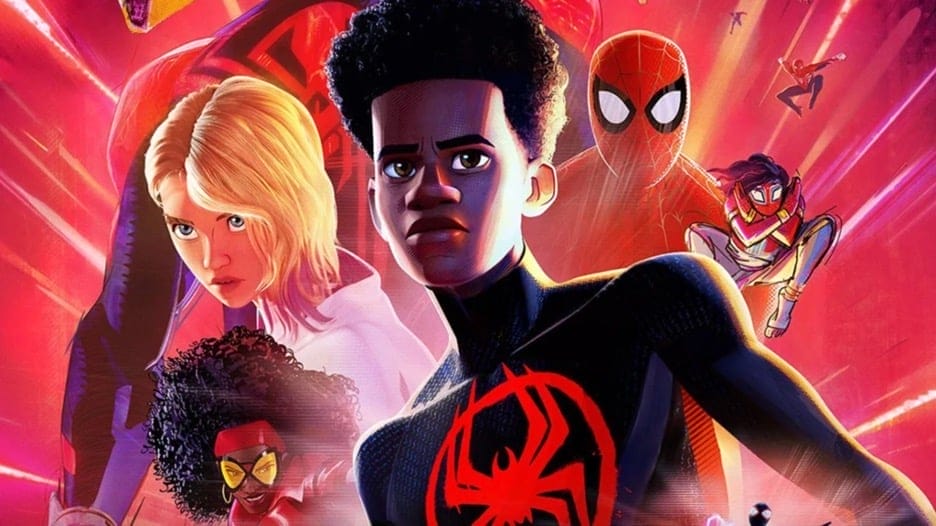
FB
That was genius. I love Spider-Man: Into the Spider-Verse and Spider-Man: Across the Spider-Verse. Those two movies, the way they were expanding the Spider-Verse was really inspiring. That’s something I wanted to just touch on a little bit because I'm looking to refresh and reset The Looking Glass Wars and we've had a lot of conversations about time travel and how time travel could play itself in this world. I had a template for the stories that I wanted to create first and then the last two were with you, Crossfire and Underfire. Now that there's been a few years I've started thinking about time travel and multiple dimensions and the multiverse, and how I might be able to reintroduce Hatter through a portal that's not just into the time in which he's living but fractures off into different times and different storylines.
How do you see time travel in fiction, in graphic novels, or in movies? What is your take on the most effective way to use time travel in storytelling?
CC
The answer is very carefully because it's an absolute can of worms. They can do something to the stakes, which you see in the Marvel movies, for example. Now, suddenly, “What really matters?” When you do time travel, you have to create a set of rules that don't undermine your stakes, and you have to create a set of rules that, when you're done with time travel, you're done with time travel. Because if it’s always there, nothing matters. You have to create a moment in time in your world, it can be for 10-15 years, but you have to know before you start how you're going to button it up correctly because nothing is worse than when time travel comes in and jumps the shark.
If done correctly, it's great. My favorite time travel thing is in Looper when Bruce Willis says to Joseph Gordon Levitt “I don’t want to sit here and talk about fucking time travel! We're gonna be here with abacuses and whiteboards.” That’s the whole point. The second you start to explain time travel, some nerd like me will go, “No, I don't think so. This actually doesn't work.” You need to use it in a fun way. Where it's like, “Hey, we're doing time travel. Okay? But we're not doing this forever and the things that you've watched before still matter.”
Otherwise, it's like the first season of Westworld in which they just kept killing these people and the people kept coming back. Why do we even care? It’s the same reason why they finally have stopped bringing Jean Grey back for a while in X-Men. She’s gonna die, but it doesn't matter and she's just gonna come back. It’s like a soap opera that way. You have to be really, really careful with the way you do it because your audience deserves that the things they read before still matter,
FB
That is why I like Quantum Leap, Doctor Who, or 12 Monkeys. All three of those did a really good job in terms of using the time travel device to keep the stakes fresh and allow an expansion of the story. Then it's about how clever you are inside of the device of the time travel.
FB
You introduced all the Card Soldiers characters in Crossfire and Underfire, where did you get the inspiration for those? You have some really great characters in there.
CC
We talked a little bit about G.I. Joe, but honestly, I really viewed it like a game. So, to me, it's a class system. In Dungeons and Dragons there's knights, wizards and sorcerers, rogues, and that kind of thing. So, we have a pickpocket. We have an explosives expert. A lot of times, when you're dealing with a Dirty Dozen-type scenario, these people are going to have, at least for the first story, a dominant personality tick, because you're not going to get the underbelly of all of them. We don't know why Gamble loves explosives. We don't know why Engels was in jail. We didn’t why the character Rue, who didn't make the team, was a pickpocket.
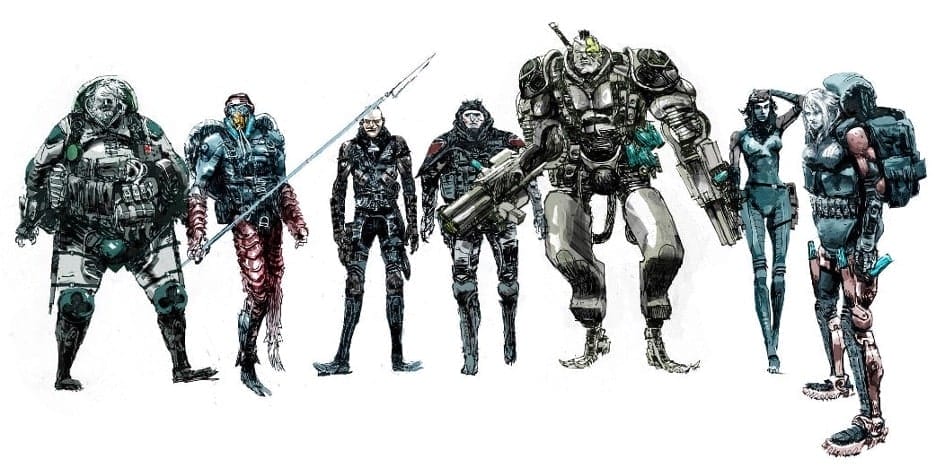
One of the things that we talked about before was my favorite character that I’ve made for your world, and Ovid is probably the one, but there's this guy named Yonnish, who's a linguistics expert in the House of Cards. I’m weirdly fascinated by that guy. No idea what he is. He's just a throwaway gag in the book but I’m thinking, “What if that guy's the hero of our story?” What if he goes to Morgavia and gets all the cultural norms and saves the day?
FB
That’s funny that you say that because there are two characters in The Looking Glass Wars, two Wonderlanders. They fall into the Pool of Tears, never to be heard from again. I was like, “Oh, I should write a story about those two.”
A lot of times I feel in the stories I've told there's a big canvas and lots of rules and lots of logic that has to get dealt with to keep the story moving. I like those things, but those are there already, now I can drop into the personal, internal stakes and find ways to externalize those.
CC
Speaking of all these other characters, whatever happened with Hellia?
FB
That's a very good question. It’s a book that was not released so I'm not opposed to talking about it. That has a big-time travel aspect of it, as well, because basically, it turns out that Redd had a child, Hellia, that she thought she had lost in childbirth. We meet Hellia at 18 and she does not know she's the heir to Redd and that if Alyss had never come back, she would be ruling Wonderland. At the same time that's happening, she's starting to come into these powers. It's her story of figuring out how she can send somebody back in time to kill or trap Hatter and Alyss in our world so the outcome of her life will be different.
CC
It’s The Terminator.
FB
It is. I finished the book and I've been trying to decide what to do with it. There's a lot of rewriting that has to happen. But it's a cool idea. You’re taking the antagonist and turning her into a protagonist by the end or at least you're showing the evolution.
CC
It’s one of those great antagonistic motivations, where, in her mind, she believes she's right.
FB
To a degree, she is right. Her mother was not a good person. But everybody is the hero of their own story, and she's the hero of her own story. Curtis, thanks a lot for forcing me to divulge a storyline that I've been sitting on for a very long time.
Tell me what you hope to do next. I hear the CEOs are talking and Netflix is getting involved in trying to resolve this strike. So, fingers crossed that we'll be out there pitching and complaining about executives but making stuff happen. In the meantime, I'm gonna be working on some graphic novels. I know you are. Are you writing any television specs or pilots to be ready for when the strike’s over?
CC
I'm focusing on the non-Hollywood stuff right now. I have four Hollywood projects that are all gonna go back live again after the strike. I have an adult animated comedy called “Down Here” that I have with this company called Mindshow. That was the one I was pitching to Amazon the day the strike happened. We’ll finish up all those pitches. I have the hour-long drama set within the Alt-Right. I have a Hallmark Christmas pitch, I never thought I'd say that, but it doesn't have to be Hallmark. I won't pitch it here but it’s a fun idea.
FB
But Hallmark is great because they produce a lot of movies. I have a lot of friends who go in for the quick paycheck. There's a quick turnaround. They have a set template for what they want. They do a lot of holiday movies.
CC
Then I have the crime drama as well, which we were already talking to investors and distributors about, that we’re trying to shoot back in Michigan. So, I have all that stuff going on. But also, the industry is so upside down right now, that I don't really want to invest my time on something like that until I know what I'm looking at. So, it's Enders, it's the graphic novel that hopefully we'll have packaged up and ready to go to publishers with the artist in tow and I'll finish the other three remaining scripts. That will be on the front burner and then also the novel Paragons as well. I also have a kids' show because I have children. I think everybody tries their hand at a kid show once they have kids. But I want to try my hand at some of the non-Hollywood stuff just because Hollywood is frustrating.
FB
The stuff you can actually get produced and share is deeply satisfying.
I find it really interesting how you’ve turned your childhood and your experience in pop culture into a job. I think a lot of folks who are artistic, whether it's drawing or writing, they're like your dad, “You'll be back in two weeks. How do I make a living?” There are so many ways, ultimately, to make a living and a lot of what this podcast has to say is about that.
When I say All Things, Alice, I think now it's All Things Imagination, and Alice is a muse for all of us. Many of us, in some way or another, are all just following, running, hoping to, you know, create our own rabbit hole and our own Wonderland.
CC
The thing with Alice in Wonderland is Lewis Carroll kind of got there first. All the stuff that I was playing with and reading as a kid, it's all influenced by Lewis Carroll. It's all about the book from 1865. The entire fantasy genre and most of the children's genre was changed forever by that book. I don't know if he did it first, but he made it popular.
FB
Well, on that, thank you. And we'll talk soon, my friend. Great chatting later.
CC
Sounds good. Thanks for having me, Frank.
Check out Part 1 of Frank's interview with Curtis!
For the latest updates & news about All Things Alice, please read our blog and subscribe to our podcast!